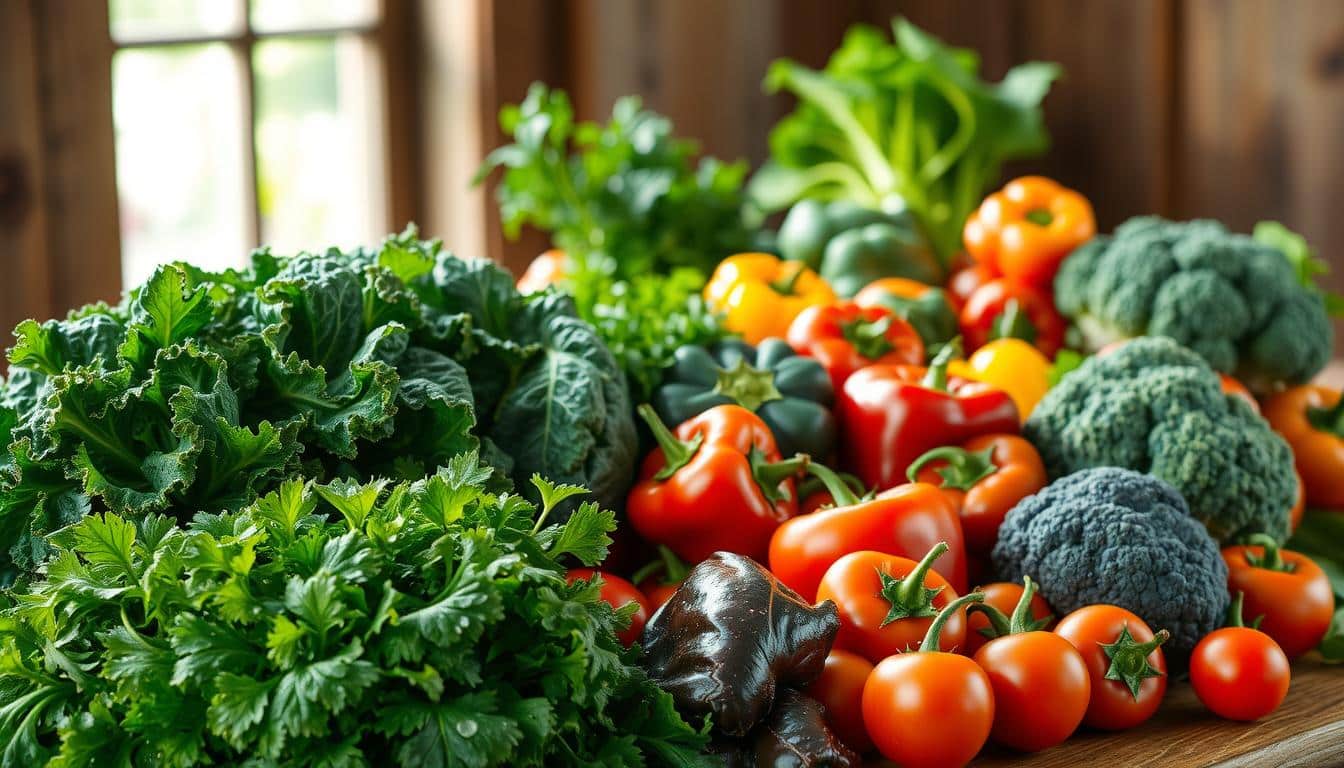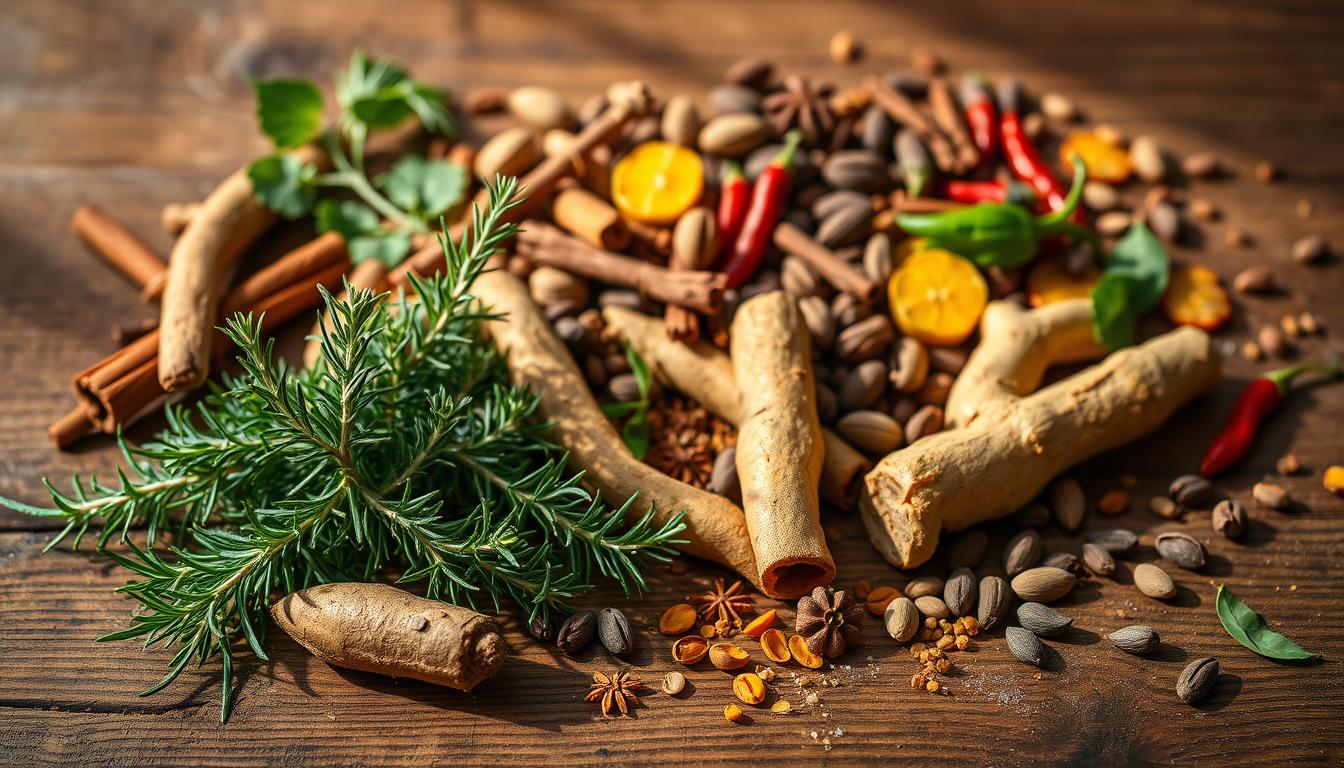As someone who’s passionate about healthy living, I’m excited to share with you the incredible benefits of incorporating anti-inflammatory foods into your diet! Research has shown that a diet rich in these foods can help reduce the risk of chronic diseases, promoting overall well-being.
By making informed choices about what we eat, we can take a proactive approach to our health. In this article, we’ll explore the health benefits of 25 scientifically-backed foods that can help combat inflammation. From delicious Mediterranean diet staples to practical daily tips, we’ll dive into the world of anti-inflammatory foods and discover how they can transform our lives!
Understanding Inflammation and Its Impact on Health
Inflammation is a complex bodily response that affects our overall health in ways we are still discovering! At its core, inflammation is the body’s natural defense against harm, whether it’s caused by injury, infection, or another factor.
Acute vs. Chronic Inflammation
Inflammation can be acute or chronic. Acute inflammation is a short-term response that helps the body heal. For instance, when you cut your finger, acute inflammation ensures that the area is protected and begins the healing process. On the other hand, chronic inflammation is a prolonged state that can lead to various health issues, including cardiovascular disease and diabetes.
How Diet Influences Inflammatory Responses
Diet plays a significant role in influencing inflammatory responses. Research from the National Institutes of Health has shown that consuming a diet high in processed foods can lead to chronic inflammation. Conversely, a diet rich in fruits, vegetables, and whole grains can help mitigate inflammation.
Research from National Institutes of Health
| Dietary Component | Effect on Inflammation |
|---|---|
| Processed Foods | Increases Inflammation |
| Fruits and Vegetables | Reduces Inflammation |
| Whole Grains | Reduces Inflammation |
By understanding the impact of diet on inflammation, we can make informed choices to improve our health.
The Science Behind Anti-Inflammatory Nutrition
Understanding the science behind anti-inflammatory nutrition is crucial for making informed dietary choices that can significantly affect our well-being! Research has shown that certain compounds in foods can either fuel or fight inflammation.
Key Compounds That Fight Inflammation
Various foods contain anti-inflammatory compounds such as omega-3 fatty acids, antioxidants, and polyphenols. For instance, turmeric contains curcumin, a powerful anti-inflammatory agent, while green tea is rich in polyphenols that help reduce inflammation.

Research-Backed Benefits of Anti-Inflammatory Diets
Studies have consistently shown that an anti-inflammatory diet can lead to numerous health benefits. By incorporating foods rich in anti-inflammatory compounds, individuals can potentially reduce their risk of chronic diseases.
Studies from Harvard Medical School
Research conducted at Harvard Medical School has highlighted the benefits of an anti-inflammatory diet. One study found that a diet rich in fruits, vegetables, and whole grains can significantly reduce inflammation and improve overall health outcomes!
By adopting an anti-inflammatory diet, we can take a proactive approach to our health, leveraging the power of food to reduce inflammation and promote well-being.
The Best Anti-Inflammatory Foods List: Fruits and Berries
Fruits and berries are not only delicious, but they also pack a powerful anti-inflammatory punch! Incorporating them into your diet can be a simple yet effective way to boost your overall health. Let’s dive into the top anti-inflammatory fruits and berries that you should be eating.
1. Blueberries: Antioxidant Powerhouses
Blueberries are rich in antioxidants, which help combat free radicals that can cause inflammation. Enjoy them as a snack, add them to your oatmeal, or blend them into a smoothie!
2. Strawberries: Vitamin C Champions
Strawberries are an excellent source of vitamin C, which has potent anti-inflammatory properties. Slice them up and add them to your salads or yogurt for a nutritious boost.
3. Cherries: Natural Pain Relievers
Cherries contain compounds that have been shown to reduce inflammation and alleviate pain. Enjoy cherry juice or snack on fresh cherries as a healthy treat.
4. Oranges: Immune System Boosters
Oranges are high in vitamin C, which not only fights inflammation but also supports immune function. Peel and segment them for a quick snack or juice them for a refreshing drink.
5. Pineapple: Bromelain-Rich Inflammation Fighters
Pineapple contains bromelain, an enzyme that has anti-inflammatory properties. Grill pineapple slices as a side dish or add them to your favorite stir-fry.
- Add berries to your breakfast oatmeal or yogurt for a nutritious start!
- Keep a bowl of fresh fruit on your counter to encourage healthy snacking.
- Blend your favorite fruits into a smoothie for a quick and easy meal.
- Incorporate citrus fruits like oranges and grapefruits into your salads for a burst of flavor.
- Grill pineapple or peaches as a delicious side dish or dessert.
By incorporating these anti-inflammatory fruits and berries into your diet, you’ll be taking a significant step towards reducing inflammation and improving your overall health. So, go ahead and get creative with these delicious and nutritious options!
Vegetables and Leafy Greens That Combat Inflammation
Incorporating vegetables and leafy greens into your diet is a powerful way to combat inflammation! These nutritional powerhouses are packed with vitamins, minerals, and antioxidants that help reduce inflammatory responses in the body.
6. Broccoli: Sulforaphane-Rich Defender
Broccoli is a cruciferous vegetable that stands out for its high sulforaphane content. This compound has been shown to have potent anti-inflammatory properties, helping to protect against chronic diseases. Add steamed broccoli to your meals or toss it into a salad for a nutritional boost!
7. Spinach: Mineral-Dense Inflammation Fighter
Spinach is rich in minerals like magnesium and potassium, which are crucial for maintaining healthy inflammatory responses. It’s also packed with antioxidants that help combat oxidative stress. Blend spinach into your smoothies or sauté it with garlic as a side dish!
8. Kale: Vitamin K Superfood
Kale is a leafy green that is exceptionally high in vitamin K, a nutrient that plays a significant role in bone health and inflammation regulation. Enjoy kale in salads, soups, or as a crispy snack!
9. Bell Peppers: Vitamin C Abundance
Bell peppers, especially the red variety, are loaded with vitamin C, a powerful antioxidant that fights inflammation. Slice them up and add to your sandwiches or stir-fries!
10. Tomatoes: Lycopene Powerhouses
Tomatoes are rich in lycopene, an antioxidant that has been linked to reduced inflammation and improved heart health. Use fresh tomatoes in salads or cook them down into sauces!
Simple Ways to Add More Anti-Inflammatory Vegetables Daily
- Add spinach to your morning smoothie!
- Sauté kale with garlic as a flavorful side dish!
- Include bell peppers in your stir-fries!
- Use broccoli as a crunchy snack with hummus!
- Enjoy tomatoes fresh in salads or cooked in soups!
| Vegetable | Key Nutrient | Benefit |
|---|---|---|
| Broccoli | Sulforaphane | Anti-inflammatory properties |
| Spinach | Magnesium, Potassium | Reduces inflammatory responses |
| Kale | Vitamin K | Regulates inflammation and bone health |

By incorporating these anti-inflammatory vegetables and leafy greens into your diet, you’ll be taking a significant step towards a healthier, more balanced lifestyle. Experiment with different recipes and cooking methods to keep your meals exciting and nutritious!
Powerful Anti-Inflammatory Herbs, Spices, and Roots
Discover how adding anti-inflammatory herbs, spices, and roots to your daily meals can be a simple yet effective way to enhance your health! These natural ingredients not only add flavor to your dishes but also provide significant health benefits.

11. Turmeric: Curcumin’s Healing Power
Turmeric contains curcumin, a compound known for its potent anti-inflammatory and antioxidant properties. Adding turmeric to your meals can help reduce inflammation and improve overall health. Try adding turmeric to soups, stews, or scrambled eggs for a nutritious boost!
12. Ginger: Ancient Anti-Inflammatory Root
Ginger has been used for centuries for its medicinal properties, including its ability to reduce inflammation. Ginger can be used in teas, stir-fries, or as a spice in baking. Its anti-inflammatory compounds can help alleviate pain and improve digestion.
13. Garlic: Allicin-Rich Immunity Booster
Garlic is not only a flavor enhancer but also a powerful anti-inflammatory agent. It contains allicin, which has been shown to have immune-boosting properties. Add garlic to your meals to enhance flavor and support your immune system.
14. Cinnamon: Blood Sugar Regulator
Cinnamon is known for its ability to regulate blood sugar levels and reduce inflammation. Sprinkle cinnamon on oatmeal, yogurt, or use it in baking to enjoy its health benefits. Cinnamon can also be added to coffee or tea for an extra boost.
15. Green Tea: Polyphenol Protector
Green tea is rich in polyphenols, which are antioxidants that help protect against cell damage and reduce inflammation. Drinking green tea regularly can improve overall health and reduce the risk of chronic diseases.
Creative Ways to Use Anti-Inflammatory Spices Daily
- Add turmeric to your morning smoothie or scrambled eggs.
- Use ginger in stir-fries or as a tea to start your day.
- Incorporate garlic into your cooking to enhance flavor and immunity.
- Sprinkle cinnamon on your oatmeal or yogurt.
- Drink green tea throughout the day to enjoy its antioxidant benefits.
By incorporating these anti-inflammatory herbs, spices, and roots into your daily meals, you can not only enhance the flavor of your dishes but also significantly improve your health. Get creative with your cooking and enjoy the benefits of a more balanced diet!
Nuts, Seeds, and Healthy Fats in Your Anti-Inflammatory Foods List
The right nuts, seeds, and healthy fats can be a game-changer in reducing inflammation and promoting overall health! These foods are not only delicious but also rich in nutrients that help combat inflammation. Let’s explore some of the top anti-inflammatory nuts, seeds, and healthy fats you can incorporate into your diet.
16. Walnuts: Omega-3 Champions
Walnuts are a rich source of alpha-linolenic acid (ALA), a type of omega-3 fatty acid that has been shown to reduce inflammation. Just a handful of walnuts a day can make a significant difference!
17. Flaxseeds: Lignans and Fiber Combination
Flaxseeds are packed with lignans, which have antioxidant properties, and fiber, which can help reduce inflammation in the gut. Grinding flaxseeds before consumption can enhance their nutritional benefits!
18. Chia Seeds: Complete Protein Source
Chia seeds are a complete protein source and rich in omega-3 fatty acids, making them an excellent addition to an anti-inflammatory diet. They can absorb a lot of water, so be sure to drink plenty when consuming them!
19. Olive Oil: Oleocanthal’s Anti-Inflammatory Effects
Olive oil is renowned for its anti-inflammatory properties, thanks to oleocanthal, a compound that has been shown to have similar effects to ibuprofen. Use it as your primary cooking oil for maximum benefits!
20. Avocados: Monounsaturated Fat Marvels
Avocados are rich in monounsaturated fats, which can help reduce inflammation and improve heart health. They’re also a great source of fiber and various essential vitamins and minerals!
Portion Control Tips for Calorie-Dense Anti-Inflammatory Foods
While nuts, seeds, and healthy fats are nutritious, they are also calorie-dense. Here are some portion control tips:
- A small handful (1 ounce) of nuts or seeds per serving
- 1/4 avocado per serving
- 2 tablespoons of olive oil per day
Being mindful of your portions can help you reap the benefits of these foods without overdoing it on the calories!
Protein Sources with Anti-Inflammatory Properties
Incorporating the right protein sources into your diet can significantly impact inflammation levels in your body! Protein is essential for overall health, and certain sources have remarkable anti-inflammatory effects. Let’s explore some of the best anti-inflammatory protein sources and how to incorporate them into your meal plan.
Salmon: Omega-3 Rich Inflammation Fighter
Salmon is renowned for its high content of omega-3 fatty acids, particularly EPA and DHA, which have potent anti-inflammatory properties. Including salmon in your diet can help reduce inflammation and promote heart health. Try grilling or baking salmon for a delicious and healthy meal!
Sardines: Small Fish, Big Benefits
Sardines are another omega-3 rich fish that offer significant anti-inflammatory benefits. They’re also rich in calcium and vitamin D when consumed with their bones. Sardines are versatile and can be added to salads or used in sandwiches.
Lentils: Plant Protein Powerhouses
Lentils are a great source of plant-based protein and are rich in fiber, which can help reduce inflammation in the digestive tract. They’re also packed with antioxidants and various minerals. Lentil soup is a comforting and healthy option for a weeknight dinner!
Bone Broth: Collagen and Amino Acid Source
Bone broth is rich in collagen and amino acids like glycine and proline, which can help reduce inflammation and improve joint health. It’s a nourishing addition to any meal and can be used as a base for soups or stews.
Greek Yogurt: Probiotic Gut Healer
Greek yogurt is an excellent source of protein and contains probiotics, which support gut health and can help reduce inflammation. Enjoy it with fruit or as a base for smoothies!
Weekly Meal Planning with Anti-Inflammatory Proteins
Planning your meals can make it easier to incorporate these anti-inflammatory protein sources into your diet. Here’s a simple meal plan idea:
| Day | Breakfast | Lunch | Dinner |
|---|---|---|---|
| Monday | Greek yogurt with berries | Lentil soup | Grilled salmon |
| Tuesday | Smoothie with Greek yogurt and spinach | Sardine salad | Bone broth with vegetables |
| Wednesday | Omelette with vegetables | Lentil salad | Grilled chicken with roasted vegetables |
By incorporating these anti-inflammatory protein sources into your diet and planning your meals, you can take a significant step towards reducing inflammation and improving your overall health!
Conclusion: Building a Sustainable Anti-Inflammatory Lifestyle
Embracing an anti-inflammatory lifestyle is a journey, not a destination. By incorporating the 25 best anti-inflammatory foods into your diet, you’re taking a significant step towards a healthier, more balanced you. Sustainable habits are key to long-term success, so start by making small changes to your daily routine.
As you adopt these new habits, you’ll begin to notice the positive impact on your overall well-being. Remember, it’s not just about the food you eat, but also about cultivating a lifestyle that promotes health and wellness. By choosing anti-inflammatory foods and being mindful of your habits, you’re investing in a healthier future.
Get well and stay well!
Ray Baker

